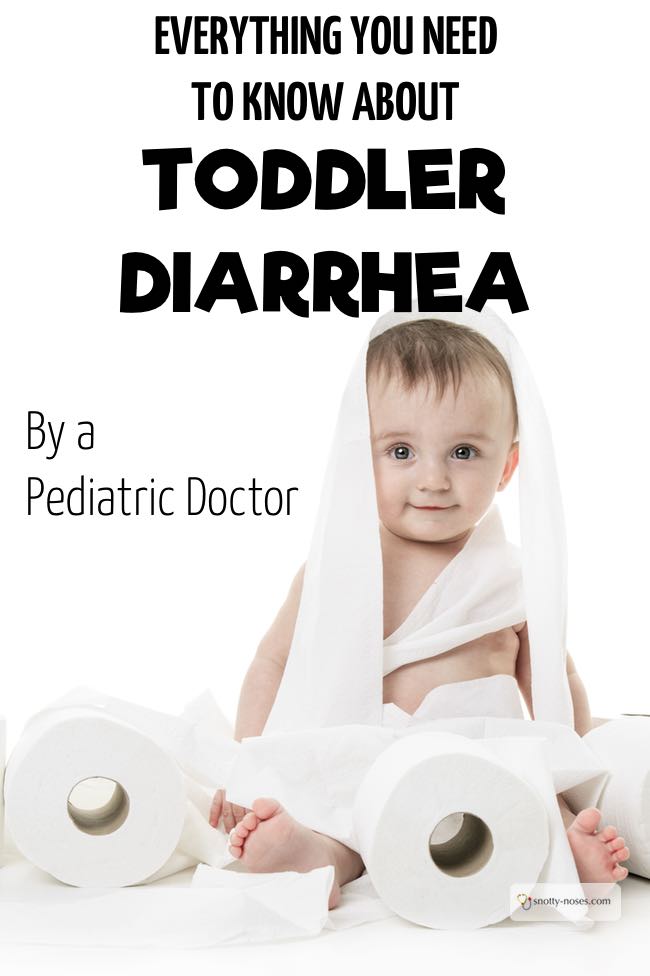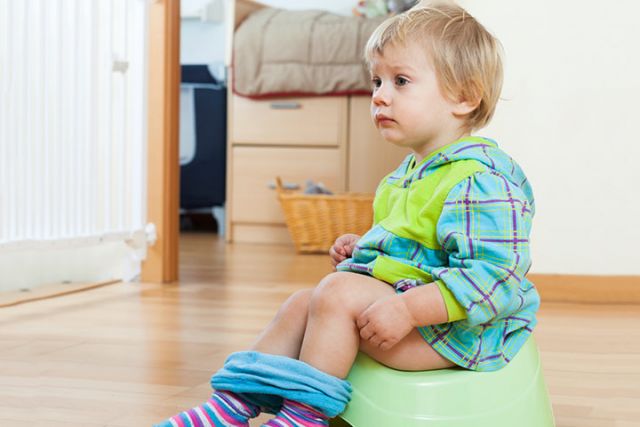Diarrhea In Toddlers

Contents:
- Causes Of Diarrhea In Toddlers
- When Should I Call The Doctor?
- How To Help A Toddler In Case Of Diarrhea?
- Treatment And Prevention Diarrhea Of Toddlers
- Diet In Case Of Diarrhea And Stomach Disorder
Diarrhea in toddlers is quite abundant bowel evacuation that, as a rule, is watery. Organism dehydration is a more serious complication in case of stomach disorder. In severe cases, if there isn’t necessary treatment provided, it can lead to the patient’s death. That’s why if your child has diarrhea, you need to necessarily call a doctor. He’ll specify diagnosis and give recommendations on diet, how much water should be drunk and what antidiarrheal agents should be taken.
Causes Of Diarrhea In Toddlers
Diarrhea in case of toddlers can be caused by one of the following things:
- Intoxication: it may be bacterial (intestinal infections) or food intoxication (in case, a person eats toxic products – mushrooms, aconite, castor beans, mezereon etc.). As for intestinal infections, the cases of colibacillosis, dysentery, yersiniosis, salmonellosis and campylobacteriosis are more often to occur. The causative agents of these diseases may be contained in low-quality products, may be spread by rodents or may be passed from an ill child on to a healthy one through articles or in case of a touch.
- Rotavirus. Usually, it affects children if they happen to be in big organized groups – in kindergartens, schools, hospitals, camps etc. Here it is also important to mention that the frequency with which the illness occurs doesn’t depend on the time of the year. The main symptoms of the rotavirus include headaches, vomiting, unpleasant sensations in muscles, diarrhea and fever.
- Stress. Nervous overstrain influences negatively the work of the bowel, quite often it causes spasms in belly and frequent bowel movement.
- Taking antibiotics. This kind of drugs destroys the entire bacterial flora in the bowel (both pathogenic and useful one), thus the process of food digestion and getting the toxins out of the organism is disturbed.
- Helminths. It’s quite often lamblia, blantidias, isosporas, microsporas and cryptosporas that are the cause of diarrhea in case of toddlers.
- Lack of lactase. The main symptoms of such like digestion disorder are pains in the belly, abdominal swelling and liquid stool that occurs in case whole milk has been drunk or other dairy products have been eaten.
- Lack of certain enzymes. For example, lack of isomaltase, saccharose etc. As a rule, lack of enzymes in case of toddlers reveals itself as diarrhea in the first 2 years of their lives. This usually happens when parents give their child this or that new product to eat.
- Enteropeptidase dermatitis. Its characteristic features are liquid stool, loss of hair and loss of weight for no reason. These symptoms occur once the period of breastfeeding has come to an end.
- Chronic diseases of the gastrointestinal tract. Crohn’s disease, nonspecific ulcerative colitis, pancreatitis and cases when liver is damaged are accompanied by diarrhea in case of toddlers. Such like diarrhea can’t be treated with usual drugs, it goes on for a very long time and, as time goes by, other specific symptoms of the disease occur.
- Food that is hard to digest. Fat food, raw vegetable and fruits can cause a strong but not so long stomach disorder. Once these hard to digest foods are out of the food ration, stool comes back to normal.
- Dyskinesia of the gastrointestinal tract (irritable bowel syndrome). The symptoms are strong spasm-like pains in the belly and liquid stool. Going to the toilet can bring quite a big relief – the pain either gets weaker or disappears at all. Usually, his disease occurs in case of those toddlers that are younger than 1 year old. Such a diagnosis like dyskinesia of the gastrointestinal tract is taken into account only after all the rest possible illnesses that may cause diarrhea in case of toddlers are eliminated.
When Should I Call The Doctor?

You need to call emergency service or an ambulance in case your toddler apart from frequent bowel movement has:
- high temperature (higher than 38,5oC);
- very strong pains in the belly;
- there is blood in the stool;
- strong weakness;
- vomiting;
- it’s hard to breathe or swallow;
- the urine has become dark;
- eruption on skin has appeared;
- joints are swollen or have started to ache.
Apart from all these symptoms, you need to pay attention to the stomach disorder that has occurred in case of a toddler that is from 1 to 3 years old. Since the weight of small babies is little, they lose body liquid in case of diarrhea very fast. Consequently, their health condition becomes worse very rapidly. Besides, there is also a need of urgent medical help if diarrhea of your toddler is caused by intoxication with non-fresh (low-quality) foods or mushrooms.
How To Help A Toddler In Case Of Diarrhea?
Even if diarrhea is not accompanied by any of the symptoms mentioned above but it goes on for more than 1 day, there is a need to consult a doctor. Before you make an appointment, you can improve the condition of your toddler by doing the following:
Your toddler should drink a lot of water. In order to prevent the case of dehydration you need to constantly replenish the amount of water that gets out of his system with the liquid stool. Not strong sweet tea, alkaline mineral water without gas or a special solution – Rehydron, Enterodes or Oralit will do for that. The liquid is given to the toddler with the help of a sucking bottle, a spoon, a tube or even a pipette. If your toddler is younger than 1 year old and you’re still breastfeeding, it’s recommended to put him to breast more often;
You may use adsorbents. These are drugs (Smecta, absorbent carbon, Enterosgel, Atoxyl, Polisorb, Polyphepan) absorb toxins thus improving general condition of a toddler. You should give them to your toddler in periods in between the times when he eats (in case of those babies that are younger than 1 year old, the drugs are to be taken only after you consulted a doctor). If big amount of drugs is taken, constipation may occur;
Diet. In case of those children who are breastfed, there is no need for a special diet. For those who are bottle fed, the mixture is replaced by its fermented milk analogue. For older babies, sparing diet is recommended. This is porridges cooked on water, rusks made out of white bread, vegetable soups (vegetables are to be grated). It is necessary to completely eliminate rye bread, rich broths, milk and dairy products, white cabbage, fresh vegetables and fruits, pastries.
Treatment And Prevention Diarrhea Of Toddlers

One of the most dangerous complications of diarrhea is dehydration. The younger the baby is, the faster dehydration occurs and its consequences are more severe. That’s why the basic idea of treating diarrhea in case of toddlers, no matter what caused the disorder in the work of the stomach, is rehydration – the process of replenishing the amount of liquid in the organism. At present, most often the method of peroral rehydration (simple feeding on water). It’s absolutely safe for toddlers and it’s not less effective than intravenous injections. This kind of rehydration is not used I the following cases:
- general severe health condition of toddler;
- constant vomiting;
- disorder of carbohydrates absorption.
In case of severe dehydration, a toddler is got on a drop counter right in the automobile of the ambulance or nasogastral tube is injected (it’s a thin tube that goes from the stomach to the nose). This way liquid can get into the body of a patient fast. All the rest treatment is provided in a hospital under the supervision of doctors.
Prescribing certain drugs depends on the cause of the diarrhea. In some cases, adsorbents and abundant water drinking are enough. However, sometimes, there is a need for antibiotics and fermented drugs. Anyway, the decision for prescribing any drugs should be made by a doctor.
Once diarrhea has stopped, it is recommended to include products with bifido and lactobacteria in the food ration of a toddler. They rebuild the microflora of the bowel. It may be homemade yoghurts on the basis of bacterial yeast or youghurts in capsules that can be bought in drugstores.
The following not complicated measures can help you to prevent the occurrence of diarrhea in toddlers:
- sterilization of tableware (this is especially important for babies under the age of 0 to 18 months);
- thorough washing of fresh fruits and vegetables;
- boiling water that you give your toddler to drink;
- washing hands with soap before eating;
- if there are several babies in a family, there is a need to give each of them their own tableware for eating and drinking;
- separate towels for each member of a family;
- using antibacterial drugs only in case a doctor prescribes them.
Diet In Case Of Diarrhea And Stomach Disorder

Recommended dishes and products:
- bread in the form of rusks. The rusks are to be made out of 200g. of wheat bread that is cooked with the use of high-grade flour; other bakery products are excluded;
- soups cooked on non-fat and not rich meat or fish broth. There should also be added mucous decoctions of groats (rice, barley, semolina), boiled and grated meat, quenelles cooked on steam, meat balls and egg cornflakes;
- meat and poultry – not fat and not sinewy kinds of beef, veal and turkey in the form of boiled on water cutlets, quenelles, meat balls; souffle out of boiled meat;
- fish – not fat kinds of fresh fish that is either boiled or cooked on steam in the form of meat balls, cutlets or when the whole piece of fish is cooked at once;
- diary products – freshly cooked curd cheese with calcium or flavorless grated curd cheese and other diary products;
- eggs – 1-2 soft-boiled eggs or eggs in the form of omelette cooked on steam;
- groats – grated porridges cooked on water (rice, buckwheat, oat);
- vegetables – only in the form of decoctions that are added to the soups;
- drinks – tea, especially, green tea, black coffee and cacao made on water; diluted fruit juices made of berries and fruits (except for plums, grape and apricots).